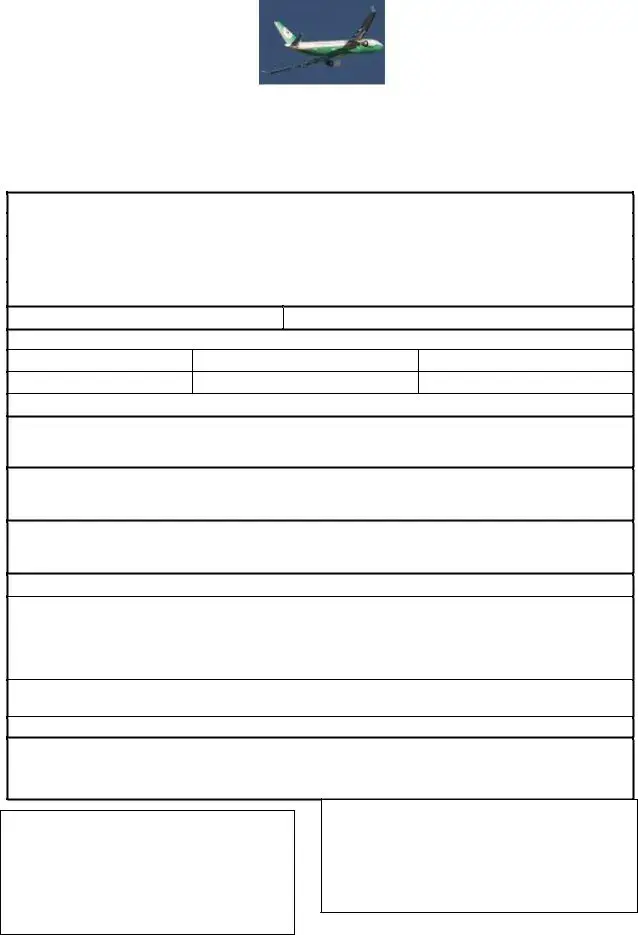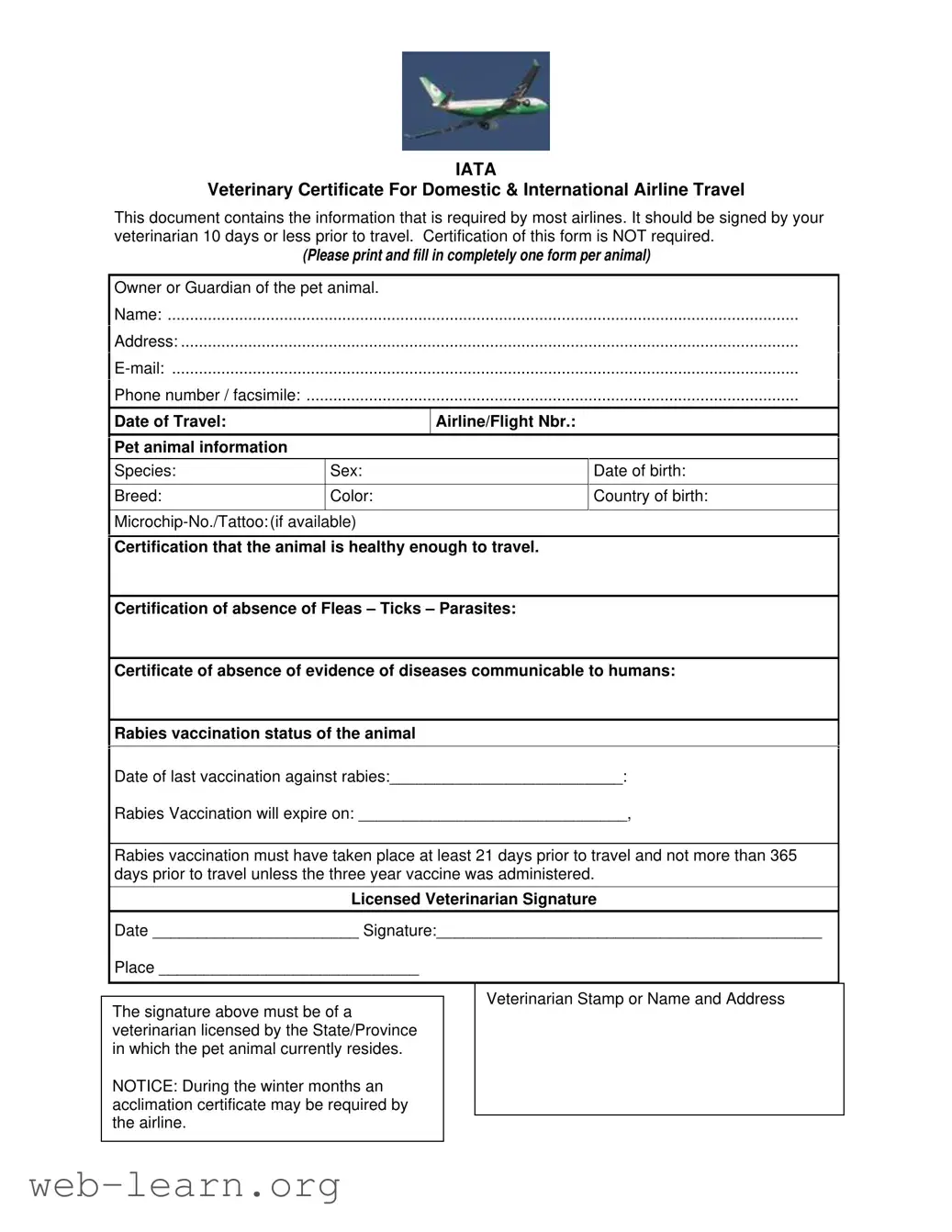
IATA
Veterinary Certificate For Domestic & International Airline Travel
This document contains the information that is required by most airlines
. It should be signed by your
veterinarian 10 days or less prior to travel.
C
ertification of this form is NOT required
.
(Please print and fill in
completely
one form per animal)
Owner or Guardian of the pet animal.
Name:
................................................................
................................
................................
.............
Address:
................................
................................
................................
................................
..........
E-
mail:
................................................................
................................
................................
............
Phone number / facsimile:
................................
................................
................................
..............
Date of Travel:
Airline/Flight Nbr.:
Pet animal information
Species:
Sex:
Date of bi
rth:
Breed:
Color:
Country of birth:
Microchip
-
No./Tattoo:
(if available)
Certification that the animal is healthy enough to travel.
Certification of absence of Fleas
–
Ticks
–
Parasites:
Certificate of absence of evidence of diseases communicable
to humans:
Rabies vaccination status of the animal
Date of last vaccination against rabies:__________________________:
Rabies Vaccination will expire on: ______________________________,
Rabies vaccination must have taken place at least 21 days prior to travel and not more than 365
days prior to travel unless the three year vaccine was administered.
Licensed Veterinarian Signature
Date _______________________ Signature:___________________________________________
Place ___________________________
__
The signature above must be of a
veterinarian licensed by the State
/Province
in which the pet animal currently resides.
NOTICE: During the winter months an
acclimation certificate may be required by
the airline.
Veterinarian Stamp o
r Name and Address

